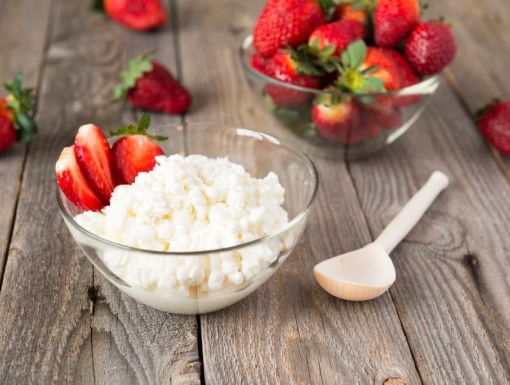
Diet Tips for Marathon Training
Training for a marathon can be a great way to stay motivated and to get into great shape. Aside from all the training and preparation to be mentally and physically ready for such a demanding event, it’s important to remember not to neglect your nutrition as well throughout your training.
Nutrition plays a vital role in preparing your body to complete an event of this intensity, regardless if you’re a first-timer aiming to just cross the finish line or an experienced marathoner hoping to obtain a personal best.
Whether you’re planning to participate in the upcoming Louisiana Marathon taking place this January in Baton Rouge or another marathon in the upcoming year, below are some nutritional tips I’ve put together to help prevent fatigue throughout your training, plus diet tips for the big day and for your recovery post-event as well.
Daily Nutrition While Training
Carbohydrates
The key to successful marathon training is optimum muscle recovery. The faster your muscles recover the more effective your next workout will be. Muscle glycogen (the stored form of carbohydrate in the body) is the most important fuel for training. Intense training will challenge the recovery of your muscle glycogen stores. Your goal is to maximize glycogen stores, saturating your muscles and liver as much as possible.
So how do you do this? Eat a rich source of carbohydrates every 3 hours or so every day throughout the day, such as bread, cereal, rice, pasta, potatoes, fruit, juice, milk and yogurt.
Fluids
Hydration is one of the most important elements of any intense training program. A fluid loss of only 2% of your body weight can impair your performance by up to 10%. Dehydration can result in muscle cramps, fatigue and even heat stroke.
Your daily fluid intake should be at least half of your body weight in ounces, plus what you lose in sweat during training. You’ll need to drink an extra 16-24 ounces of fluid for every pound of sweat lost. Any fluid without caffeine or alcohol will contribute to your hydration. Being even slightly dehydrated can impair muscle recovery, which will impair your performance.
Before Training or Day of the Marathon
Carbohydrates
This meal serves two main purposes: to “top off” your body’s carbohydrate stores and to help stave off hunger during long endurance events. This meal, consisting of approximately 0.5 - 1 gram of carbohydrate per pound of body weight, should be eaten about 2 to 4 hours before starting time.
Watch the fat and fiber in these pre-event meals, which can cause gastrointestinal discomfort. Stick with foods that are familiar and are low in fat and fiber, such as bread, bagels, cereals, grits, fruit, fruit juices and yogurt.
Fluids
Drink 2 cups of fluid 2 hours before you exercise.
During Training or Marathon
Carbohydrates
Since your body only has a limited supply of blood sugar and glycogen, it is essential to eat throughout an endurance event (events lasting 90 minutes or longer) in order to provide carbohydrates to the working muscles.
Plan to eat and drink carbohydrates that are quickly digested and absorbed. This means more sugary, refined, processed carbs than what you may be accustomed to in your usual nutritious diet. The idea is to limit protein, fat and fiber, all of which break down slowly and can lead to a slower energy release, not to mention intestinal cramping.
Therefore, this is a great time to indulge your sweet tooth! Experiment with different carbohydrate sources to find what works well for you. If you’re training in hot weather, pack foods that won’t melt easily.
Popular carbohydrate options include sports drinks, gel packs, and energy bars such as Clif or Power Bars. But your carbohydrate of choice doesn’t necessarily have to be a ‘sports nutrition’ food. Think along the lines of raisins, Fig Newtons, animal crackers and baked chips. Even Jelly Bellies has entered the sports nutrition arena with its conveniently packaged Sport Beans.
Fluids
Staying well hydrated before, during and after your workouts will help prevent muscle fatigue and cramping, and also help maintain a safe core body temperature. In addition to keeping your body hydrated, sports drinks and dilute juices can also contribute to your carbohydrate intake. Aim for at least 6 ounces of fluid every 15-20 minutes.
Recovery After the Marathon
Carbohydrates
Refueling after a tough workout or race is essential for quality training. Effective recovery is necessary to minimize fatigue and injury. Start taking in carbohydrates within 15-20 minutes after exercise. This is when your muscle cells are most efficient at replenishing carbohydrate stores. Including a little protein will enhance your body’s absorption of the carbs.
Continue taking in high carb foods every 2-3 hours throughout the day. If you don’t feel like eating, try reaching for juice, smoothies, sports drinks, low-fat chocolate milk and meal replacement drinks for carb replacement.
Fluids
Be sure to drink enough to replace sweat losses: 16-24 ounces per pound of sweat lost. While water is great, products such as Endurox R4 or Accelerade may help to further minimize soreness and fatigue. Listen to your body – if you’re constantly feeling weak after a long workout, it’s likely that you’re not refueling as optimally as possible.



